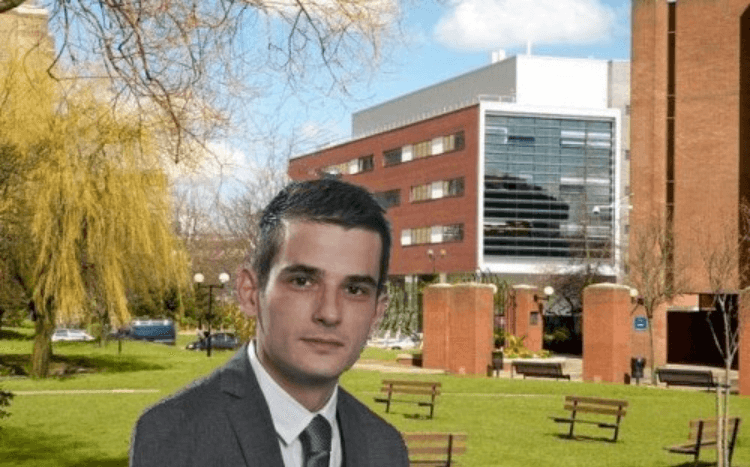“For every company I'm applying to, I'm doing research on their ethical track record,” he says, adding: “I've already ruled out some American companies on this basis.”
“Of course I want to work for a big company in the end. But it’s so important to get these things right.”
Periklis started off as a mechanical engineering research assistant in the Greek Ministry of Development, before moving on to low-level management in an IT company. He then spent a couple of years in the Greek army, commanding 60 people on construction sites.
Now he’s aiming for the energy sector again, and has applications going with BP and Shell, amongst others. His aim is to secure broader management roles, so he’s understandably interested in the finance and communications options on his MBA course.
But Periklis believes his career direction will be heavily influenced by Aston’s Business, Ethics, Responsibility and Sustainability module.
“We had Sir Adrian Cadbury [Aston’s Chancellor] come in and explain the need for corporate responsibility. He gave an overview of events that indicated the need for Corporate Governance and the Code of Best Practice during the last two decades.”
On this note, Periklis says he’s unsure where he stands on nuclear power after recent events.
“The problem is that one in a million is enough to destroy so much. The impact from the meltdowns in Japan will be felt across the whole planet.
“It seems unsustainable in that sense. Until science finds a way to secure reactors from natural disasters, it’s questionable.”
So does this put him off employers? If he’s unsure about the sustainability of a company’s operations, does this mean he’s unsure about their ethical track record?
“I'm not sure, because it depends. My first question is really: how I would be involved?”
“No one on the outside can see a company’s processes, or the risks they take and vulnerabilities they have, so I would prefer to reserve judgement and see with my own eyes what's going on when (and if) I get in.”
“I don't know if it’s realistic to demand any shift from nuclear energy to another form because Japan will become dependent on an external energy source, which could destroy their economy – and they already under a lot of pressure.”
But despite his interest in the Business, Ethics, Responsibility and Sustainability course, Periklis insists that “the most valuable thing on an MBA is the personal experience.”
“You learn how to manage yourself. It’s not ultimately about the modules, but how you'll manage with such a huge workload and still find your way out,” he says. “The primary knowledge is how you can work in a team and different cultures.”
“The real learning happens when the deadlines arrive; everything’s collapsing around you and still having the strength to continue.”
RECAPTHA :
f0
74
8f
67







